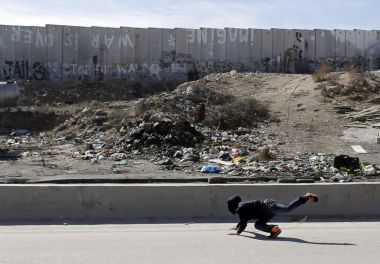'Build bridges not walls': Catholic bishops protest Israeli expansion

Catholic properties, including a Salesian convent, monastery and school, are at risk under Israeli security wall plans.
Tel Aviv Magistrate's Court has approved land appropriation that would cause the Salesians to lose property in the Cremisan valley, which is located immediately between the West Bank and Jerusalem. Several Christian families could also lose their homes if the plans to re-route the separation wall go ahead.
The Assembly of Catholic Ordinaries of the Holy Land (ACOHL) has released a statement calling for greater protections for the area and those who live there.
The statement says that the ACOHL "observes with anxiety the latest developments" in the case.
The bishops contend that a hearing on November 30 pressurised local residents to "make a choice between two unacceptable alternatives, both to the community and the Salesian Congregation".
"ACOHL stands wholeheartedly with achieving justice in 'Cremisan' and against building the separation wall, which is contrary to international law. In fact, the wall is intended by Israel, not to achieve security for its pre-June 1967 borders, but to protect the settlements illegally constructed on previously confiscated land," the statement continues, accusing Israel of also trying to expand its settlements.
"The wall alienates the most basic rights and freedom of the Christian community of Beit Jala," it adds – a largely Christian town near Bethlehem.
The bishops implore Israel to promote reconciliation rather than further division, noting that they are "in favour of building bridges and not walls".
"Land confiscation and settlement expansion do not serve peace in the region," the statement says, adding that many members of the community in the Cremisan valley, most of whom are Christians, will be forced to leave the region.
"ACOHL calls on the international community to take immediate action to protect the 'Cremisan' valley's integrity within the Palestinian side and prays for all those in power and authority to wake up and realize the values of justice and peace, based on mutual respect and international legitimacy," the statement concludes.
Described by Israelis as a "security fence" to stop suicide bombers getting into Israeli territory from the West Bank, the wall has been the subject of much contention since the beginning of its construction in the early 2000s.
Palestinians contend that it is merely part of Israel's land grab, and seeks to annex Palestinian land.











